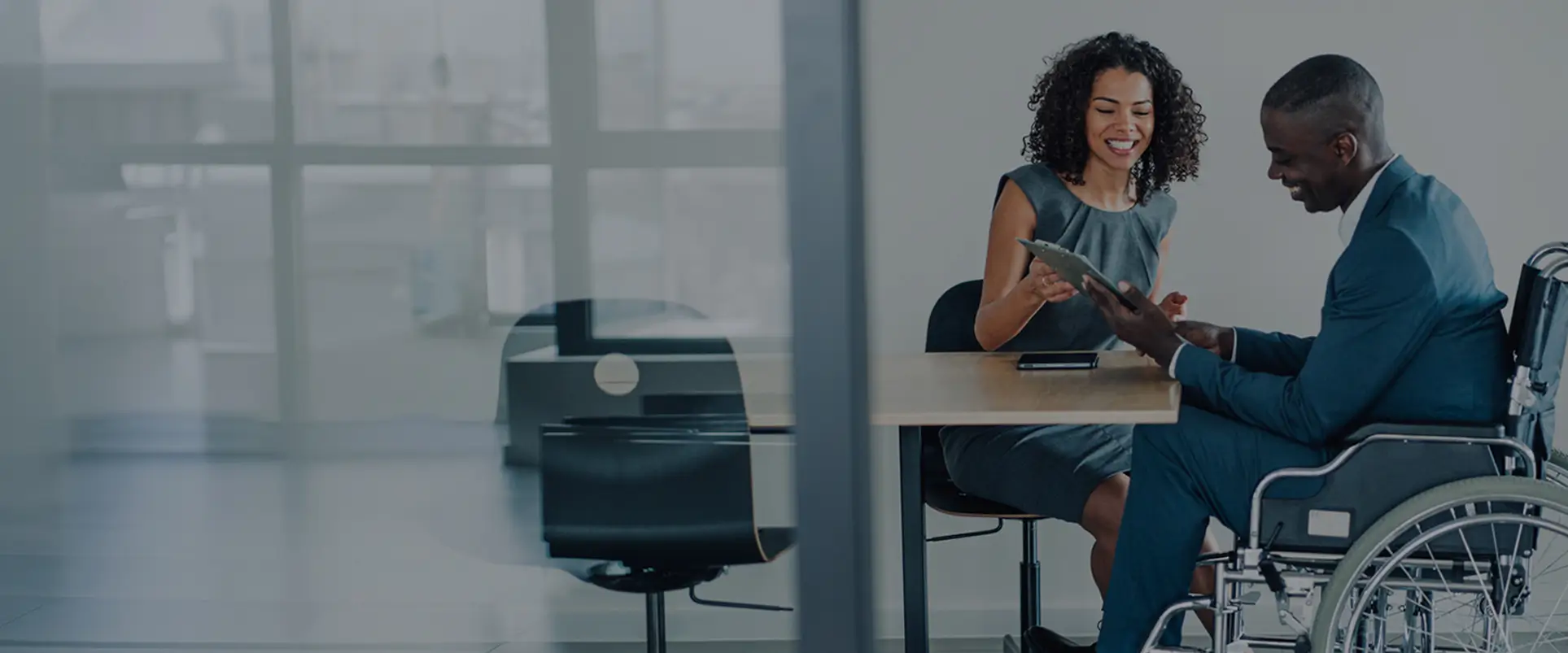
We are in it together
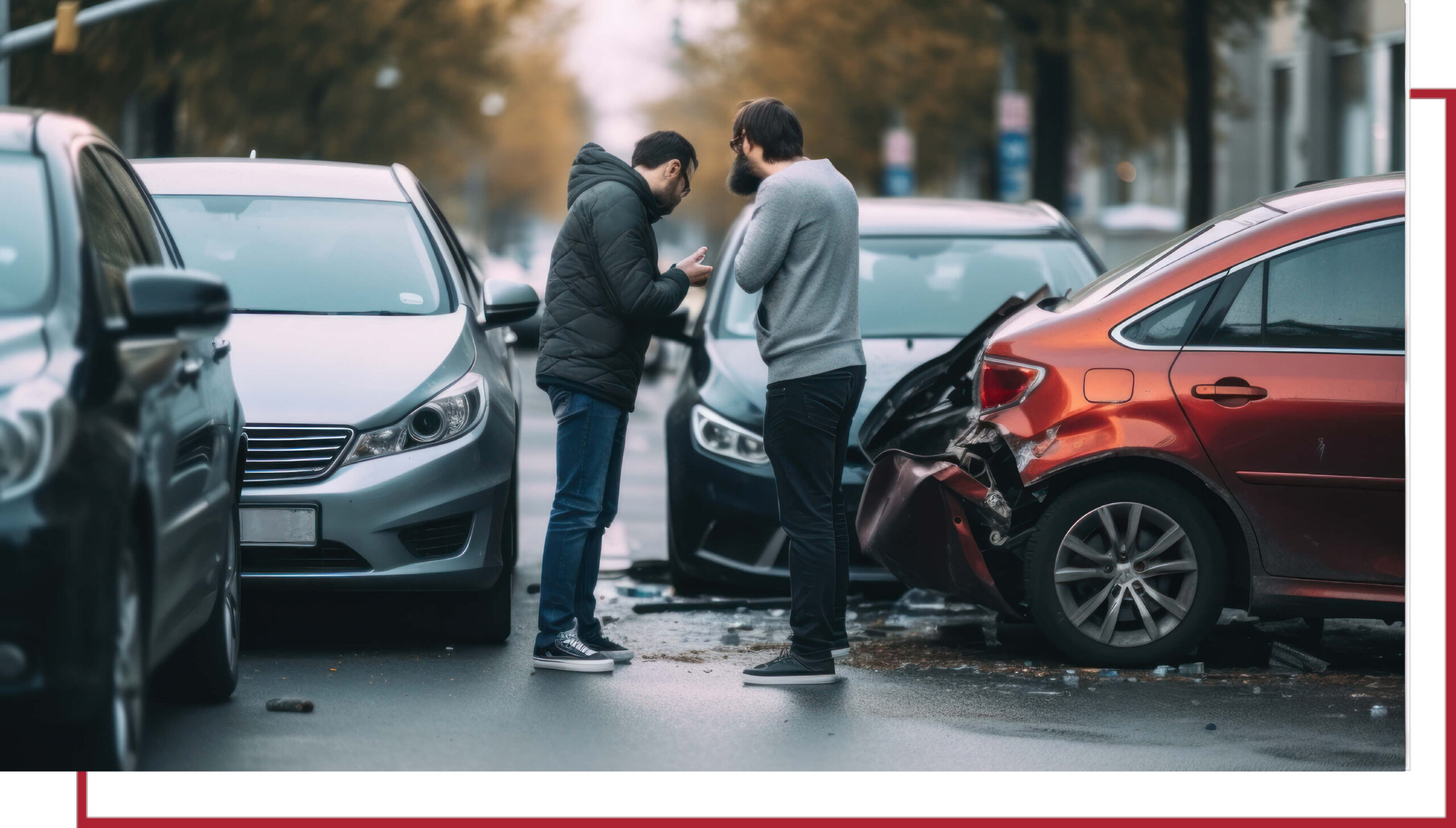
Injured In A Car Accident? We Can Help!
From a fender-bender to a large multi-vehicle pileup, car accidents are common on the roads of North Carolina. Minor crashes may result in easy-to-fix damage to your car, but a collision often leaves you with significant injuries and a ruined vehicle. When someone else is to blame for these losses, you need help seeking the compensation you need and deserve.
At the Ricci Law Firm, we specialize in providing experienced guidance from a knowledgeable North Carolina car accident lawyer. We understand how to work with insurance companies to reach a fair settlement for you. We are also courtroom-ready from day one if your claim goes to trial. Contact us for a free consultation today.
Navigating the Complexities of Car Accident Claims
We represent clients in claims arising from car accidents caused by negligence, including distracted driving, speeding, and impaired driving. Our team works to secure compensation for injuries, property damage, and emotional distress.
Additionally, we handle insurance negotiations, pursue third-party liability claims for additional compensation, and guide clients through the legal process to ensure they receive the financial support needed for their recovery and future stability.
All Related Practice Areas:
Car Accidents Are Increasing in North Carolina Every Year

Common Causes of Car Accidents on North Carolina Roads
- Speeding: A leading factor in both single-vehicle and multi-vehicle accidents
- Reckless and Aggressive Driving: Including road rage and ignoring traffic laws
- Distracted Driving: Using cell phones, GPS devices, or interacting with passengers
- Driving Under the Influence: Impaired by drugs or alcohol, affecting reaction times
- Weather Conditions: Heavy rain, ice, snow, or flooding creating hazardous conditions
- Vehicle Defects or Poor Maintenance: Faulty parts or improper repairs leading to accidents
With North Carolina’s growing population and industries, car crashes are becoming more frequent. The DOT reports a 7.5% increase in fatalities and over 276,000 crashes in a year, with speeding involved in 24% of fatal accidents. Factors like reckless driving, distractions, and hazardous conditions contribute significantly to these incidents.
Even a single-car crash may stem from another party’s negligence, such as faulty repairs. Contact the Ricci Law Firm for a free case evaluation to explore your options for compensation.
We Build Your Case for Liability Using Strong Evidence
North Carolina’s at-fault and pure contributory negligence rules make car accident claims challenging. Even 1% fault can bar compensation. The Ricci Law Firm builds strong cases with evidence like photos, reports, and witness statements to prove negligence. We also handle complex cases like dram shop liability to secure fair compensation.
Greenville Car Accident Lawyers
With so much of our lives spent in our vehicles these days, car accidents are common occurrences. They can range from small inconvenient bump-ups that cause no injuries and only cosmetic damage to the automobiles involved to catastrophic accidents ending in serious injuries or fatalities and vehicles that are damaged beyond repair.
If you have been in a car accident and someone else’s misconduct or negligence is to blame, you may be entitled to compensation. A Greenville car accident lawyer with the Ricci Law Firm can provide you with skillful navigation through the legal process. Our attorneys work diligently with the involved insurance companies so that we can reach a generous settlement for you.
Our legal team understands how big insurance companies work, and we understand how to work with them. Our lawyers are top-notch negotiators but are trial ready when negotiations do not produce the desired result for our clients. There is no charge for a free consultation.
Car Accidents Happen Daily in Greenville, NC
North Carolina is experiencing population growth, and businesses are springing up around the region, meaning that there are more cars on the road than ever before. In 2021, there were many unnecessary accidents. A few of the more astonishing statistics from the North Carolina Department of Transportation (DOT) are listed below:
- 4,629 car accidents happened because someone failed to stop at a stop sign.
- 11,811 were caused by drivers operating their vehicles at excessive speeds. 83 of these accidents ended in tragedy.
- 66,640 automobile accidents were caused when a driver failed to reduce their speed, ending in 155 lives lost.
- 42,021 accidents occurred when the driver failed to yield the right of way. This ended in the death of 172 individuals and 14,747 injuries.
- 46,321 accidents were blamed on inattentive drivers. 148 deaths and 12,589 injuries preventable accidents happened.
When drivers are distracted, have poorly maintained vehicles, and fail to follow traffic laws, property is damaged, and preventable injuries and deaths occur.
Fatal Accidents in Greenville, NC
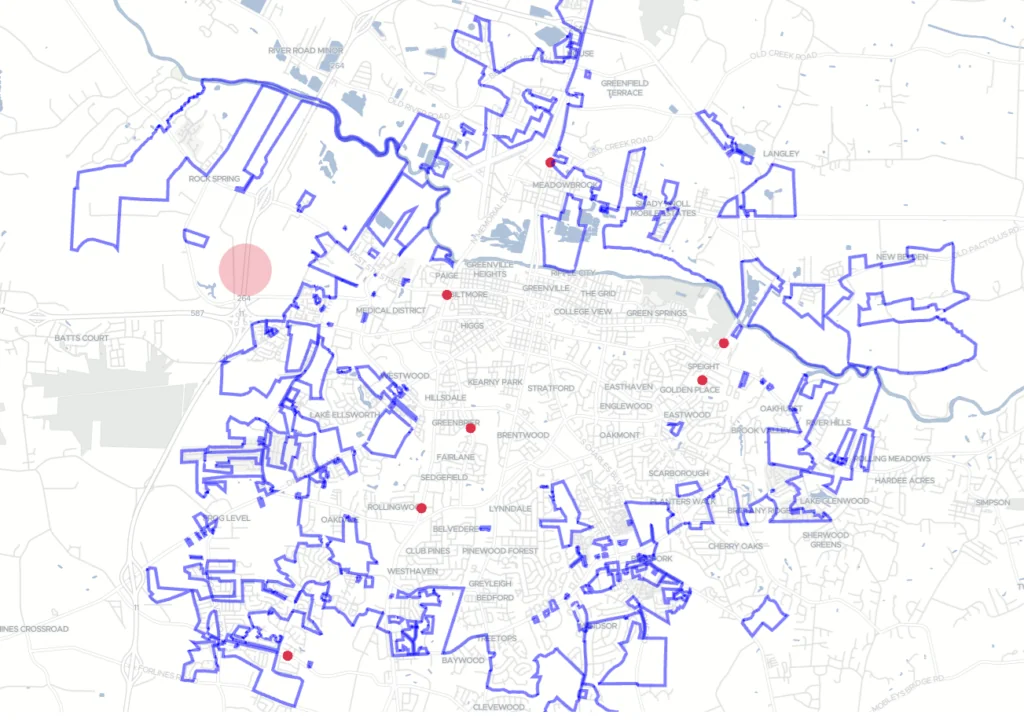
Greenville NC 2021 Fatal car crash and road traffic accident statistics
| Fatal Accident Count | 6 |
| Vehicles Involved in Fatal Accidents | 9 |
| Fatal Accidents Involving Drunk Persons | 0 |
| Fatalities | 6 |
| Persons Involved in Fatal Accidents | 10 |
| Pedestrians Involved in Fatal Accidents | 3 |
DATA SOURCE 2021 CITY-DATA.COM
Most Accidents are Preventable
Numerous factors cause car accidents. However, most of them have something in common. They could have been prevented.
Listed below are some of the issues that contribute to automobile accidents:
- Reckless driving happens when drivers are reckless, careless, or aggressive, and their passengers and those they share the road with are endangered by their conduct.
- Driving under the influence (DUI) caused 281 North Carolina fatalities in the latest reporting year.
- Violating traffic laws causes most traffic accidents.
- Fatigued drivers have reaction times that are similar to that of those driving under the influence. Exhausted drivers cause accidents.
- Distracted drivers are one of the leading causes of roadway collisions. Drivers who are on their phones, using GPS, or are distracted by other passengers create hazardous conditions for other drivers.
- Hazardous road conditions caused by rain, ice, snow, flooding, or heavy fog contribute to many vehicle accidents.
- Road debris, like tractor-trailer shredded tires, trash, limbs, or other debris, can cause accidents.
- Animals, wild and domestic, can walk out in front of a car. The driver’s first instinct is to swerve or brake, sometimes causing chaos on the road.
- Poorly maintained vehicles are more likely to be in accidents. Slick tires, worn brakes, and burned-out head and tail lights cause problems.
Each accident is unique. You may feel that you are to blame for an accident you are involved in. But, even if your car was the only one involved, it could be due to the negligence of someone else. This could happen if there was damage to your car during a repair or if they ignored a problem that should have been fixed.
Speak to a Greenville car accident attorney regardless of what you have attributed the car accident to. Our vast experience has given us unique insight into all of the possible options you may have for pursuing a case for compensation.
Greenville’s Guidelines for Determining Who Pays What in the Case of an Auto Accident
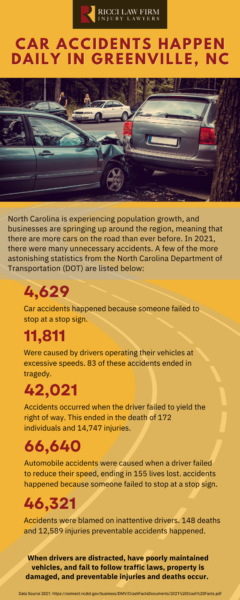 Greenville falls under North Carolina’s guidelines as an at-fault state for automobile accidents and insurance claims. Being an at-fault state simply means that the person who caused the collision must pay for the damages.
Greenville falls under North Carolina’s guidelines as an at-fault state for automobile accidents and insurance claims. Being an at-fault state simply means that the person who caused the collision must pay for the damages.
In addition to North Carolina’s at-fault rule, they operate under a pure contributory negligence rule. This rule means that a plaintiff may find a percentage responsible for their accident, and whatever that percentage is, they cannot seek damages. For instance, if a driver were found 15% to blame for an accident, they would receive $0.
Gathering Evidence to Construct the Most Robust Case Possible
A car accident lawyer in Greenville will review the details of the case. Combing through the evidence, witness testimony, and the car accident circumstances will help them build a solid strategy to prove who was liable for your wreck.
It is a common misconception that an injured party’s insurance company will reimburse them for their losses. Because of effective marketing, we imagine our car insurance company as kind neighbors who want nothing but to help us. We forget that they are a business and are in it for profits, not our best interest.
Since Greenville works under a pure contributory negligence rule, your insurance company is anxious for you to shoulder the blame because they will claim they do not have to pay. After all, you are at fault. The other driver’s insurance and your own will do their best to diminish or dismiss your claim.
Because of the tendency for insurance companies to try to wiggle out of their obligations, your Greenville car accident attorney must dig deeper and bring more compelling evidence to the table so that you can collect the type of settlement you deserve.
The Four Elements of Negligence
If you or a loved one have been injured in a car accident, your legal team has the job of showing that the defendant was 100% negligent. The attorneys for the defense will try to poke holes in your case if at all possible.
Lucky for you, you are in good hands with the Ricci Law Firm. Your Greenville car accident lawyer understands how to prove the four elements of negligence and is ready to apply their skill and knowledge in this area to your case. The four elements of negligence are duty, breach, causation, and damages.
The First Element is Duty
When determining liability in a negligence suit, it must be demonstrated that the defendant owed a legal duty of care to the plaintiff in the situation. In certain cases, the relationship between the injured party and the party they are taking legal action against matters. A doctor owes their patient a duty of adequate medical care so as not to be considered negligent, for example.
The defendant in an automobile accident owed other drivers, who they shared the road with, a duty of care to safely operate their vehicle so as not to endanger anyone else.
The Second Element is Breach of Duty
Once the court establishes that there was, indeed, a duty of care, your Greenville car accident lawyer will then need to prove that the defendant breached that duty of care. They will do this by demonstrating what a person practicing reasonable caution would do in the same situation. The phrase “reasonably prudent person” refers to how the law considers an average person’s reaction under similar circumstances to behave.
So, for the court to find the defendant negligent, the plaintiff must show that an average person, having the knowledge they had at the time, would have known that the potential to injure someone because of their actions existed. And because of this, they would have conducted themselves differently to avoid that happening.
The Third Element is Causation
After proving a duty of care and that that duty was breached, the plaintiff must show that the negligence caused their injuries. Even if the driver behaved negligently does not automatically mean that their negligence caused your injury.
An example would be if a driver were texting while driving. This is a negligent act. But, the plaintiff must prove that the driver’s texting resulted in the accident that caused the plaintiff’s injury.
Another thing the court wants to uncover is whether the defendant could have predicted that their behavior could have caused an injury. If the defendant’s actions caused the accident because of random or unexpected behavior, then the defendant would not be liable since avoiding an injury would not have been something the driver could have predicted.
The Fourth Element is Damages
When determining negligence, the car accident attorney needs to be able to prove there were damages that the plaintiff suffered and should be reimbursed for. This element of determining negligence means that the plaintiff is able to demonstrate injury to the court.
The plaintiff must prove damages. Otherwise, there is no reason to offer compensation.
Proving Negligence
The four elements must be demonstrated by the plaintiff in order to prove negligence following a car accident. The defendant must have owed you a duty of care, meaning they were obligated to drive safely. They understood their duty and failed to behave appropriately, and because of that failure, the plaintiff’s injuries were caused.
After those qualifications are met, the plaintiff must prove that damages were sustained.
Proving Your Case
When it comes to investigating and turning up every helpful detail and understanding unhelpful details so that we can combat them in court, Ricci Law Firm has you covered. Our investigators will gather evidence from every available source. Some examples are listed below:
- Photographs that were taken at the scene of the accident
- The accident report from law enforcement
- Witness testimony and statements from those involved, as well as eyewitnesses
- Information about road conditions and any extenuating weather conditions occurring during the collision.
- Photographs of injuries and property damage
- Mobile phone records from the drivers since sometimes apps and phone usage can provide valuable evidence
- Vehicle repair log
- Any traffic, security, or dash cam footage will be collected and reviewed.
If necessary, Ricci Law Firm can employ accident investigators to independently and objectively define what occurred and who is liable.
How Insurance Works in Greenville
Drivers living in North Carolina are mandated to carry liability insurance to cover the damages they may cause in an automobile accident. The state’s required minimum coverages are listed below:
- $30,000 per person and $60,000 for two or more people must be carried under the category of bodily injury liability.
- For property damage liability, drivers are required to carry $25,000 per incident.
Sometimes, though illegal, drivers choose to drive uninsured. This can leave a driver involved in an accident with them with few possibilities of being compensated for an accident where they are not at fault. The plaintiff would be covered after an accident by their own insurance company if they purchased a policy add-on known as Uninsured/underinsured motorist insurance (UM/UIM) to keep themselves protected.
UM/UIM insurance could be valuable if your injuries and damages were so excessive that they depleted the limits of the other policy.
If insurance is not going to cover the damages that a plaintiff in Greenville sustains, they might consider filing a personal injury lawsuit for compensation for the damages suffered above the cost of what insurance will cover.
Auto Accidents are to Blame for Catastrophic Injuries
Though many injuries are evident at the scene of an automobile accident, some people do not realize they are injured. This can be because they are in shock or because the body is experiencing a spike of adrenaline. Either way, injuries can be masked immediately following a crash.
Often, you are treated at the scene by the first responders and sent to the emergency room for further treatment. But, in minor accidents, you may be hurt but moving well enough on your own to think you do not need medical assistance. But, no matter your thoughts on your condition, accept medical assistance immediately following a car accident.
Over time, your injuries may present themselves. Things like whiplash are common after an auto accident and can worsen in the days and even weeks following a wreck. Sometimes, after a head injury, you may feel well but become disoriented or sick to your stomach after returning home. To avoid medical bills attributed to something other than the accident later, seek medical attention immediately.
The Value of Your Car Accident Claim
When physical injuries are suffered in a car accident, the bills can mount quickly. Emergency room visits, ambulance travel, X-rays, CT scans, diagnostic tests, stays in the intensive care unit, hospital stays, surgeries and procedures, prescription medications, and follow-up appointments can end up costing a lot of money to the accident victim. Following an accident caused by someone else, your claim should cover your medical costs, but that is not all.
If you have missed work due to the accident, that compounds the financial issues that come with the often gargantuan medical bills after a car accident. Lost wages and the loss of future wages should be considered when deciding what your claim is worth. If you are not able to return to a job you previously had because your injuries make it impossible for you to do it, you may be entitled to compensation.
Compensation is typically in two, sometimes three categories. Economic and non-economic, and occasionally, punitive damages are awarded.
Economic Damages
Economic damages are easy to calculate. There is a direct economic loss that can be easily demonstrated. Some examples of economic damages are listed as follows:
- Medical bills
- Repairs to or replacement of your vehicle
- Personal property damage, like cell phones, laptops, or suitcases
- Lost income while you are unable to work
- Loss of future earnings if you become disabled and unable to work
- Physical therapy, occupational therapy, and psychological therapy costs
This is by no means an exhaustive list. But, simply an example of some of the monetary compensation you can possibly expect following an automobile accident.
Non-economic Damages
There are damages that are more difficult to put a monetary value on following a car accident. This does not mean that the sufferer should not be compensated. Some examples of non-economic damages are listed below:
- Mental distress
- Scarring and disfigurement
- Loss of enjoyment of life
- Loss of consortium
- Post-traumatic stress disorder (PTSD)
- Depression
- Isolation
- Damage to reputation
- Anxiety disorders
- Pain and suffering
Non-economic damages, though harder to calculate, are an important part of a settlement package. Emotional and physical damages must be compensated for.
What is the average car accident settlement in North Carolina?
There isn’t a fixed standard for car accident settlements in North Carolina. The amount typically hinges on factors like the extent of the victim’s injuries, the number of vehicles in the incident, and the circumstances of the accident.
Car Accident FAQs
There are many complexities involved in car accident claims. Navigating the legal process can be overwhelming, especially while recovering from injuries and dealing with the aftermath of a crash.
To help, we’ve compiled answers to some of the most common questions our clients have about car accident cases in North Carolina. Read on to learn more about your rights and potential compensation.

Getting injured in a car accident is a traumatizing experience for us all, and it can be overwhelming if you decide to take the other driver to court f...
If You Get Injured While Using Your Personal Vehicle for Your Business Side Hustle, Your Car Insurance May Be Worthless
A decade or so ago, it was pretty easy to tell whic...
If you have a teenage driver, it is important to teach them about the many dangers that come with operating a motor vehicle. From drinking and driving to texting and driving, there are many habits ...
There are a lot of distractions on the road today. As drivers, we have anything from our phones beside us to accidents on the road nearby. We don’t want to get into an accident ourselves beca...
Getting into an accident with another driver is bad enough, but what if you get into an accident with a drunk driver? The injuries could be worse on both sides, and it’s a more dangerous acci...
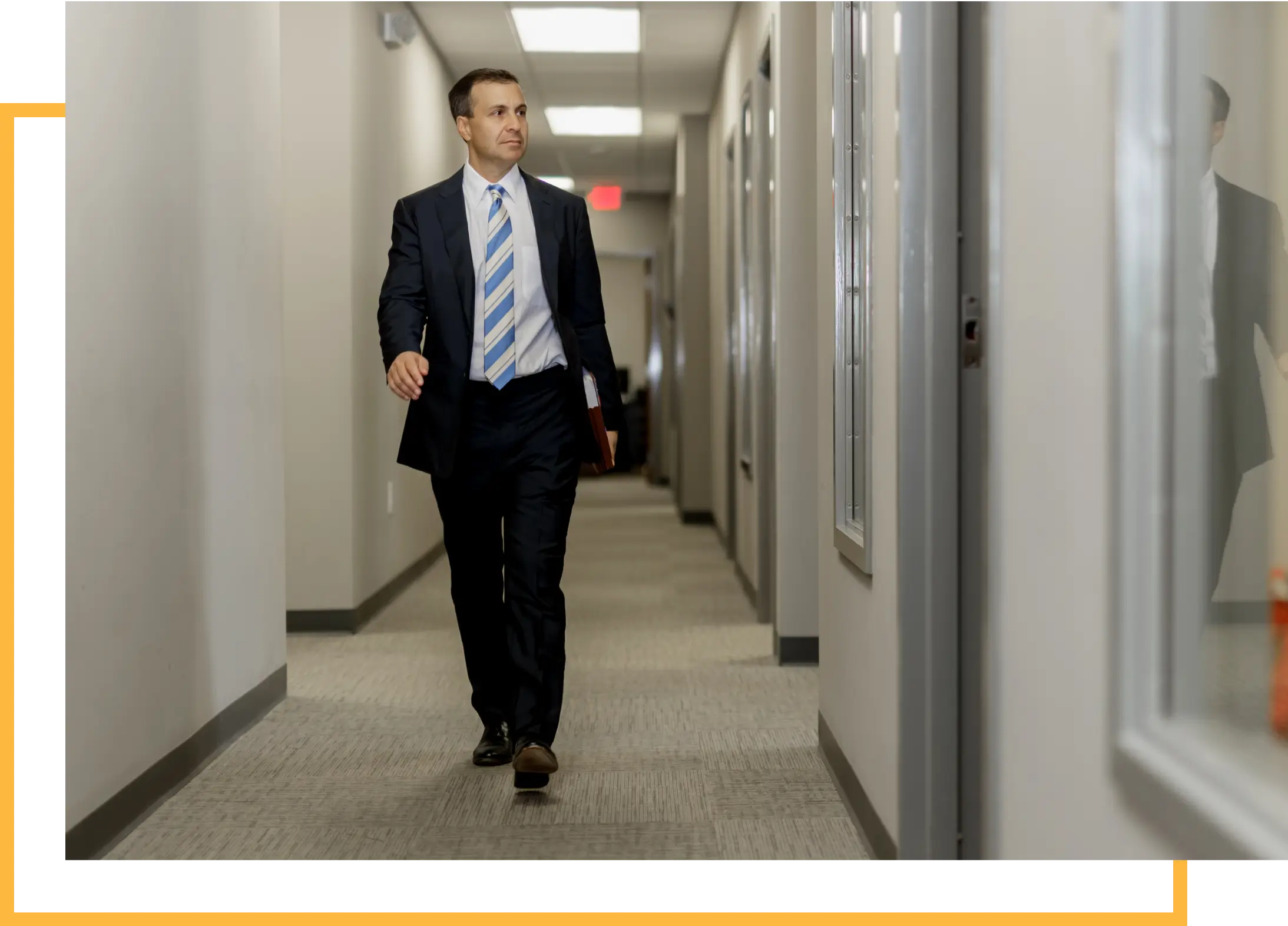
The Ricci Law Firm Can Help
Dealing with insurance companies is complicated and can be overwhelming. The skilled Greenville car accident lawyers with the Ricci Law Firm understand the complexities and understand that victims of car accidents need tenacious representation so that they are awarded the compensation that allows them to heal properly. Contact us today so that we can investigate your case and help you to construct a strategy to ensure you receive the maximum possible compensation for your accident.
